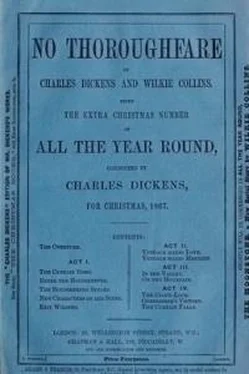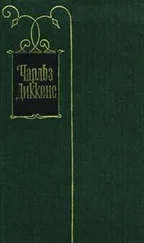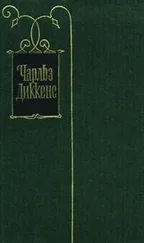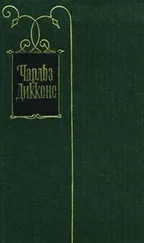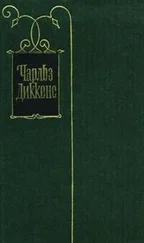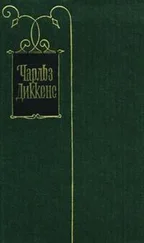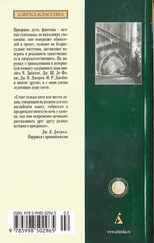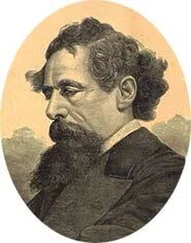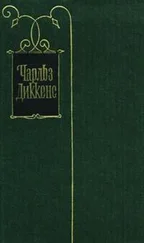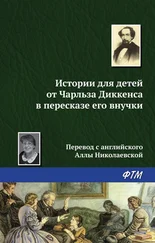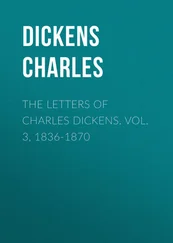Чарльз Диккенс - No Thoroughfare
Здесь есть возможность читать онлайн «Чарльз Диккенс - No Thoroughfare» весь текст электронной книги совершенно бесплатно (целиком полную версию без сокращений). В некоторых случаях можно слушать аудио, скачать через торрент в формате fb2 и присутствует краткое содержание. Год выпуска: 2014, Издательство: epubBooks Classics, Жанр: Классическая проза, на английском языке. Описание произведения, (предисловие) а так же отзывы посетителей доступны на портале библиотеки ЛибКат.
- Название:No Thoroughfare
- Автор:
- Издательство:epubBooks Classics
- Жанр:
- Год:2014
- ISBN:нет данных
- Рейтинг книги:5 / 5. Голосов: 1
-
Избранное:Добавить в избранное
- Отзывы:
-
Ваша оценка:
- 100
- 1
- 2
- 3
- 4
- 5
No Thoroughfare: краткое содержание, описание и аннотация
Предлагаем к чтению аннотацию, описание, краткое содержание или предисловие (зависит от того, что написал сам автор книги «No Thoroughfare»). Если вы не нашли необходимую информацию о книге — напишите в комментариях, мы постараемся отыскать её.
No Thoroughfare — читать онлайн бесплатно полную книгу (весь текст) целиком
Ниже представлен текст книги, разбитый по страницам. Система сохранения места последней прочитанной страницы, позволяет с удобством читать онлайн бесплатно книгу «No Thoroughfare», без необходимости каждый раз заново искать на чём Вы остановились. Поставьте закладку, и сможете в любой момент перейти на страницу, на которой закончили чтение.
Интервал:
Закладка:
No Thoroughfare
Wilkie Collins
Charles Dickens
The Overture
Day of the month and year, November the thirtieth, one thousand eight hundred and thirty–five. London Time by the great clock of Saint Paul's, ten at night. All the lesser London churches strain their metallic throats. Some, flippantly begin before the heavy bell of the great cathedral; some, tardily begin three, four, half a dozen, strokes behind it; all are in sufficiently near accord, to leave a resonance in the air, as if the winged father who devours his children, had made a sounding sweep with his gigantic scythe in flying over the city.
What is this clock lower than most of the rest, and nearer to the ear, that lags so far behind to–night as to strike into the vibration alone? This is the clock of the Hospital for Foundling Children. Time was, when the Foundlings were received without question in a cradle at the gate. Time is, when inquiries are made respecting them, and they are taken as by favour from the mothers who relinquish all natural knowledge of them and claim to them for evermore.
The moon is at the full, and the night is fair with light clouds. The day has been otherwise than fair, for slush and mud, thickened with the droppings of heavy fog, lie black in the streets. The veiled lady who flutters up and down near the postern–gate of the Hospital for Foundling Children has need to be well shod to–night.
She flutters to and fro, avoiding the stand of hackney–coaches, and often pausing in the shadow of the western end of the great quadrangle wall, with her face turned towards the gate. As above her there is the purity of the moonlit sky, and below her there are the defilements of the pavement, so may she, haply, be divided in her mind between two vistas of reflection or experience. As her footprints crossing and recrossing one another have made a labyrinth in the mire, so may her track in life have involved itself in an intricate and unravellable tangle.
The postern–gate of the Hospital for Foundling Children opens, and a young woman comes out. The lady stands aside, observes closely, sees that the gate is quietly closed again from within, and follows the young woman.
Two or three streets have been traversed in silence before she, following close behind the object of her attention, stretches out her hand and touches her. Then the young woman stops and looks round, startled.
"You touched me last night, and, when I turned my head, you would not speak. Why do you follow me like a silent ghost?"
"It was not," returned the lady, in a low voice, "that I would not speak, but that I could not when I tried."
"What do you want of me? I have never done you any harm?"
"Never."
"Do I know you?"
"No."
"Then what can you want of me?"
"Here are two guineas in this paper. Take my poor little present, and I will tell you."
Into the young woman's face, which is honest and comely, comes a flush as she replies: "There is neither grown person nor child in all the large establishment that I belong to, who hasn't a good word for Sally. I am Sally. Could I be so well thought of, if I was to be bought?"
"I do not mean to buy you; I mean only to reward you very slightly."
Sally firmly, but not ungently, closes and puts back the offering hand. "If there is anything I can do for you, ma'am, that I will not do for its own sake, you are much mistaken in me if you think that I will do it for money. What is it you want?"
"You are one of the nurses or attendants at the Hospital; I saw you leave to–night and last night."
"Yes, I am. I am Sally."
"There is a pleasant patience in your face which makes me believe that very young children would take readily to you."
"God bless 'em! So they do."
The lady lifts her veil, and shows a face no older than the nurse's. A face far more refined and capable than hers, but wild and worn with sorrow.
"I am the miserable mother of a baby lately received under your care. I have a prayer to make to you."
Instinctively respecting the confidence which has drawn aside the veil, Sally—whose ways are all ways of simplicity and spontaneity—replaces it, and begins to cry.
"You will listen to my prayer?" the lady urges. "You will not be deaf to the agonised entreaty of such a broken suppliant as I am?"
"O dear, dear, dear!" cries Sally. "What shall I say, or can say! Don't talk of prayers. Prayers are to be put up to the Good Father of All, and not to nurses and such. And there! I am only to hold my place for half a year longer, till another young woman can be trained up to it. I am going to be married. I shouldn't have been out last night, and I shouldn't have been out to–night, but that my Dick (he is the young man I am going to be married to) lies ill, and I help his mother and sister to watch him. Don't take on so, don't take on so!"
"O good Sally, dear Sally," moans the lady, catching at her dress entreatingly. "As you are hopeful, and I am hopeless; as a fair way in life is before you, which can never, never, be before me; as you can aspire to become a respected wife, and as you can aspire to become a proud mother, as you are a living loving woman, and must die; for GOD'S sake hear my distracted petition!"
"Deary, deary, deary ME!" cries Sally, her desperation culminating in the pronoun, "what am I ever to do? And there! See how you turn my own words back upon me. I tell you I am going to be married, on purpose to make it clearer to you that I am going to leave, and therefore couldn't help you if I would, Poor Thing, and you make it seem to my own self as if I was cruel in going to be married and not helping you. It ain't kind. Now, is it kind, Poor Thing?"
"Sally! Hear me, my dear. My entreaty is for no help in the future. It applies to what is past. It is only to be told in two words."
"There! This is worse and worse," cries Sally, "supposing that I understand what two words you mean."
"You do understand. What are the names they have given my poor baby? I ask no more than that. I have read of the customs of the place. He has been christened in the chapel, and registered by some surname in the book. He was received last Monday evening. What have they called him?"
Down upon her knees in the foul mud of the by–way into which they have strayed—an empty street without a thoroughfare giving on the dark gardens of the Hospital—the lady would drop in her passionate entreaty, but that Sally prevents her.
"Don't! Don't! You make me feel as if I was setting myself up to be good. Let me look in your pretty face again. Put your two hands in mine. Now, promise. You will never ask me anything more than the two words?"
"Never! Never!"
"You will never put them to a bad use, if I say them?"
"Never! Never!"
"Walter Wilding."
The lady lays her face upon the nurse's breast, draws her close in her embrace with both arms, murmurs a blessing and the words, "Kiss him for me!" and is gone.
Day of the month and year, the first Sunday in October, one thousand eight hundred and forty–seven. London Time by the great clock of Saint Paul's, half–past one in the afternoon. The clock of the Hospital for Foundling Children is well up with the Cathedral to–day. Service in the chapel is over, and the Foundling children are at dinner.
There are numerous lookers–on at the dinner, as the custom is. There are two or three governors, whole families from the congregation, smaller groups of both sexes, individual stragglers of various degrees. The bright autumnal sun strikes freshly into the wards; and the heavy–framed windows through which it shines, and the panelled walls on which it strikes, are such windows and such walls as pervade Hogarth's pictures. The girls' refectory (including that of the younger children) is the principal attraction. Neat attendants silently glide about the orderly and silent tables; the lookers–on move or stop as the fancy takes them; comments in whispers on face such a number from such a window are not unfrequent; many of the faces are of a character to fix attention. Some of the visitors from the outside public are accustomed visitors. They have established a speaking acquaintance with the occupants of particular seats at the tables, and halt at those points to bend down and say a word or two. It is no disparagement to their kindness that those points are generally points where personal attractions are. The monotony of the long spacious rooms and the double lines of faces is agreeably relieved by these incidents, although so slight.
Читать дальшеИнтервал:
Закладка:
Похожие книги на «No Thoroughfare»
Представляем Вашему вниманию похожие книги на «No Thoroughfare» списком для выбора. Мы отобрали схожую по названию и смыслу литературу в надежде предоставить читателям больше вариантов отыскать новые, интересные, ещё непрочитанные произведения.
Обсуждение, отзывы о книге «No Thoroughfare» и просто собственные мнения читателей. Оставьте ваши комментарии, напишите, что Вы думаете о произведении, его смысле или главных героях. Укажите что конкретно понравилось, а что нет, и почему Вы так считаете.
